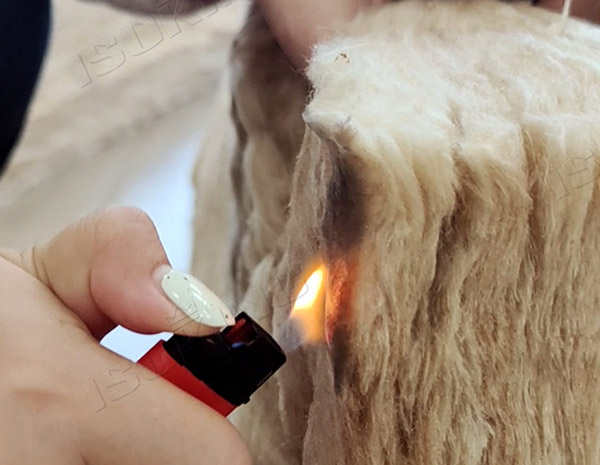Glass wool, as an inorganic fiber material, is mainly composed of quartz sand or recycled glass, which is melted at high temperature and transformed into a fibrous structure by centrifugation. According to information from multiple sources, glass wool insulation material is classified as Class A non combustible material, which means it will not burn or release toxic or harmful gases in a fire, effectively preventing the spread of fire and protecting the safety of personnel and property. Specifically, centrifugal glass wool has excellent fire resistance, and even under extreme conditions, it will not support combustion or maintain flame propagation.

However, it is worth noting that although glass wool itself is not flammable, in some special cases, if glass wool is exposed to extremely high temperatures for a long time (such as over 300 ° C), softening or melting may occur, but this does not mean that it will burn. In addition, although glass wool has good fire resistance properties, if there is grease, paint, or other flammable substances on its surface, these additives may become potential ignition sources. Therefore, during installation and use, it is necessary to ensure that the surface of the glass wool is clean and avoid contamination with any flammable materials.
In addition, there is information indicating that the melting point of best glass wool insulation can reach over 700 ℃, which can remain stable in such high temperature environments and is not easily deformed. At the same time, because it does not contain organic components, it will not release harmful gases in a fire. This further proves that glass wool, as a safe and reliable insulation material, performs very well in the face of fire threats.
In summary, glass wool insulation material itself is non flammable and belongs to Class A non combustible materials with excellent fire resistance. But in order to ensure the best safety, the construction area should be cleaned before construction to ensure that there are no flammable substances such as oil stains and dust residues, and the installation and fixation of glass wool should be firm to prevent safety hazards caused by other factors. For architectural design, choosing insulation materials with high fire resistance levels such as biosoluble glass wool can not only improve the overall safety of buildings, but also meet the requirements of modern building energy conservation and environmental protection.